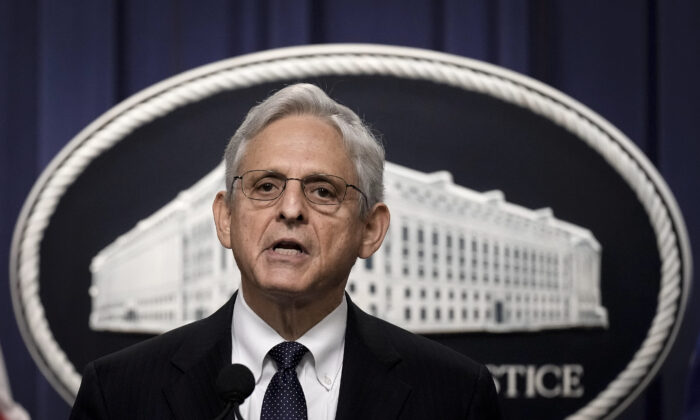President Joe Biden’s administration on Aug. 15 urged a federal court to keep the affidavit that led to the approval of a search warrant on former President Donald Trump’s resort shielded from the public.
U.S. Department of Justice (DOJ) lawyers said unsealing the affidavit would “irreparably harm the government’s ongoing criminal investigation.”
“Even when the public is already aware of the general nature of the investigation, revealing the specific contents of a search warrant affidavit could alter the investigation’s trajectory, reveal ongoing and future investigative efforts, and undermine agents’ ability to collect evidence or obtain truthful testimony,” they wrote in a 13-page filing to U.S. Magistrate Judge Bruce Reinhart, who is overseeing the case.
“In addition to the implications for the investigation, the release of this type of investigative material could have ‘devastating consequences’ for the reputations and rights of individuals whose actions and statements are described,” they added, citing a previous decision in a different case.
A slew of parties, including Judicial Watch, media outlets, and the Florida Center for Governmental Accountability, have lodged motions after the Aug. 8 raid of Mar-a-Lago, arguing it is in the public interest to unseal the affidavit and other related documents.
The government and Trump’s lawyers agreed on some of the documents, and Reinhart unsealed the search warrant and several attachments on Aug. 12, revealing that the government believes Trump violated multiple laws.
‘Different Set of Considerations’
“The department filed the motion to make public the warrant and receipt in light of the former president’s public confirmation of the search, the surrounding circumstances, and the substantial public interest in this matter,” Attorney General Merrick Garland said in prepared remarks three days after the raid.
Those documents were made public with few redactions.
“The affidavit supporting the search warrant presents a very different set of considerations. There remain compelling reasons, including to protect the integrity of an ongoing law enforcement investigation that implicates national security, that support keeping the affidavit sealed,” DOJ lawyers said in the new filing.
Affidavits are documents filed in court that outline why certain actions are needed. In this case, a law enforcement official filed an affidavit attempting to convince Reinhart to approve the warrant. The affidavit was successful.
The government has considered whether the affidavit could be released with redactions but “the redactions necessary to mitigate harms to the integrity of the investigation would be so extensive as to render the remaining unsealed text devoid of meaningful content, and the release of such a redacted version would not serve any public interest,” government lawyers said in a footnote in an Aug. 15 brief.
“Nevertheless, should the Court order partial unsealing of the affidavit, the government respectfully requests an opportunity to provide the Court with proposed redactions,” they said.
The filing was part of a flurry of activity in the case on Aug. 15, which included several other entries being sealed until further notice.

No comments:
Post a Comment